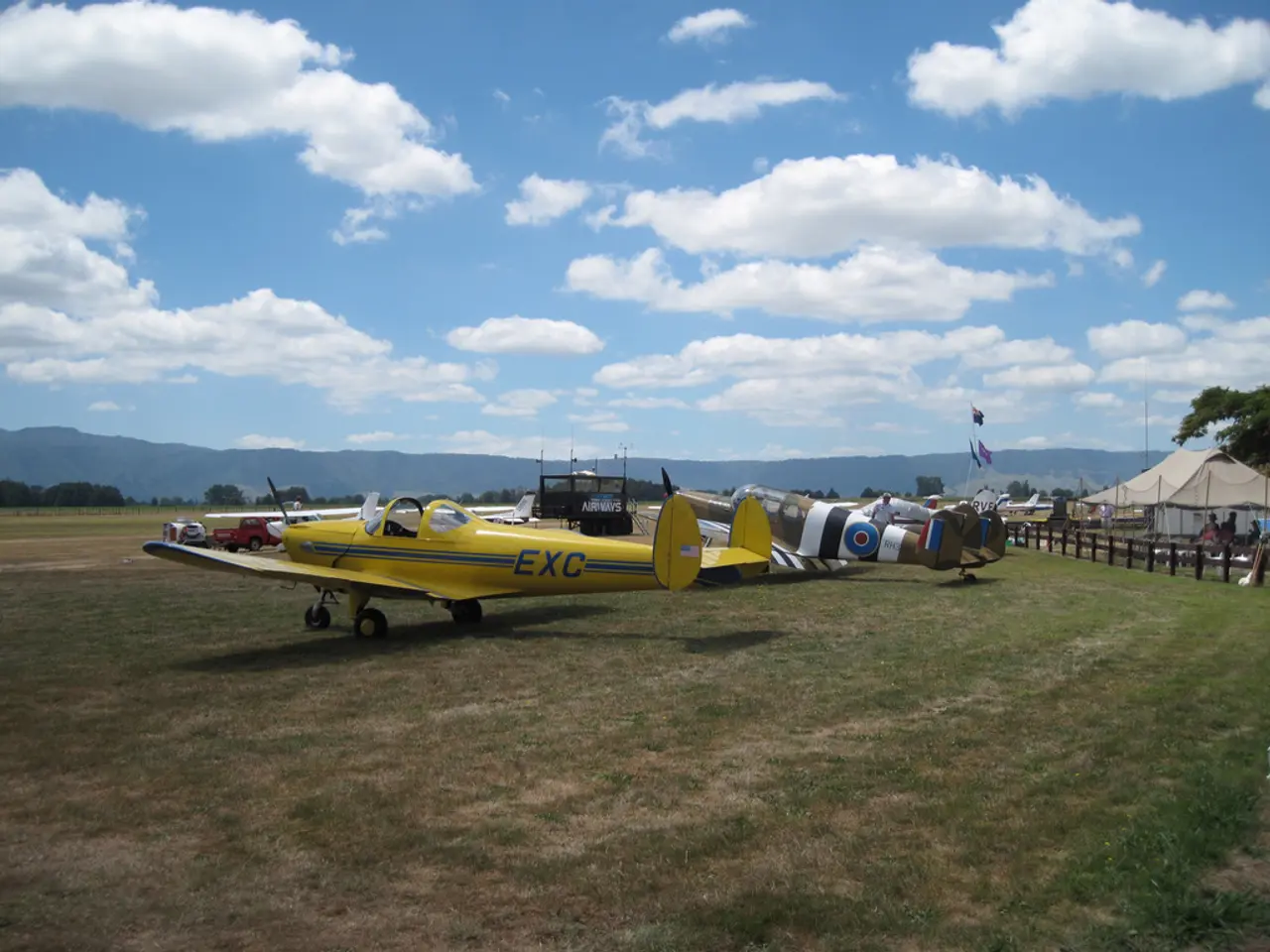Expansion of Drone Delivery Services Pursued by Federal Aviation Administration
The Department of Transportation and the Federal Aviation Administration (FAA) have proposed a new rule for commercial drone operations, aiming to make these operations safer, more predictable, and more accessible.
Under the proposed rule, drone operators will be subject to a two-tiered system of permits and certificates, enabling routine flights beyond visual line of sight (BVLOS) up to 400 feet above ground level for drones weighing up to 1,320 pounds including payload.
For lower-risk operations, permits will be issued for activities like package delivery, agriculture, aerial surveying, and civic interest use. Operators must identify operation boundaries, the number of daily flights, and takeoff/landing/loading areas. They must also ensure adequate communication coverage with established fail-safe procedures if contact is lost with the drone.
Higher-risk operations, requiring certificates, will be subject to greater FAA oversight. These certificates give broader operational authorization but impose stricter compliance and safety standards.
Operators must maintain safe separation, yield to manned aircraft, avoid interference with other airspace operations, and observe existing FAA flight notices and airspace restrictions. Flying over large crowds or gatherings remains prohibited.
The rule also requires drone operators to use FAA-approved Automated Data Service Providers (ADSPs) that provide real-time data to mitigate risks of airspace conflicts. Operators may act as their own ADSPs if approved.
Drones up to 1,320 pounds may forego traditional airworthiness certification if they conform to industry consensus standards, simplifying the approval process for operators.
The FAA is partnering with the Transportation Security Administration (TSA) to vet all parties involved in drone operations, enhancing operational security.
The rule will be subject to a public comment period of 60 days following publication in the Federal Register before becoming effective.
Amazon and Walmart are already authorized by the FAA to perform drone deliveries in select locations and cities across the nation. However, concerns have been raised that hardware and compliance requirements could create challenges for existing operations.
This proposed rule, if implemented, could significantly change the commercial use of drones, making them more accessible for various operations such as package deliveries, agriculture, aerial surveying, public safety, recreation, and flight testing.
- In the realm of business, companies like Amazon and Walmart have already been authorized by the Federal Aviation Administration (FAA) in selected locations to conduct drone deliveries, showcasing the potential for drone operations in commerce.
- The technology industry could see significant advancements with the proposed rule by the Department of Transportation and the FAA, as drones up to 1,320 pounds may forego traditional airworthiness certification if they conform to industry consensus standards, simplifying the approval process for operators.
- The intersection of politics and finance is evident, as concerns are raised about the hardware and compliance requirements of the proposed drone rule potentially causing challenges for some existing operations, which could impact investment decisions in the technology, transportation, and business industries.




